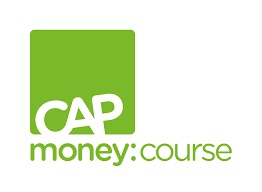Tim volunteers for Soulscape. He’s great at setting up PAUSE, but he also has specialist skills. So this year we recommended him for something a bit different in school.
‘42% of young people couldn’t decipher credit/overdrawn on a bank account statement.’ 2013 survey.
Tim understands money.
Money problems can be a major source of adult depression. When it all goes wrong; when the bills start to mount and account charges spiral out of control, finance can become a living nightmare. It is vital that young people learn to manage money well so they can save, plan, assess risk and make informed decisions. It can mean the difference between a life of debt and a life free from debt.
Don’t young people learn about finance at school?
From September 2014 it was planned that personal finance education would be rolled out within the national curriculum, as part of mathematics and ‘citizenship’ lessons. Groups such as MoneySavingExpert.com welcomed the news. However, as Martin Lewis, Founder of MSE explained, “The national curriculum is only compulsory for around half of schools; the rest due to being free schools or academies don’t need to follow it. (We must) ensure parents, teachers and head teachers of the other schools realise its importance and teach it as well, even though they don’t have to.”
There’s never enough time.
The curriculum is very full. We know how difficult it is for schools to find time for ‘important extras’ and it is hard to imagine that there is sufficient space to give to this important subject. Charity, IFS (School of Finance) evidently thought so too when they said, ‘(We) remain sceptical that dumping financial capability in Citizenship and Mathematics will deliver any meaningful change. Citizenship is already an overcrowded subject area in which financial capability is unlikely to amount to more than a few hours a term.’
But it is vital that young people learn these skills.
In 2013 a survey conducted by Barclays and charity, Personal Finance Education Group, revealed alarming gaps in under 25’s knowledge:
42% couldn’t decipher credit/overdrawn on a bank account statement.
1/3 didn’t know what APR meant in relation to loan/credit cart interest charges.
13% didn’t know what an overdraft was – 8% believed it to be a low-cost bank loan.
Tracey Bleakley, PFEG chief executive, said: “It is clear that many young people are entering adult life with dangerous gaps in their financial knowledge that could lead them into serious financial difficulty.”
So Soulscape were delighted to be able to recommend Tim to The Holt School.
Tim is an experienced accountant, and he shares his time and experience with CAP (Christians Against Poverty), an organisation that tackles poverty head on.
Tim says, “I have had a great opportunity recently to use some of my work charity ‘Giving Back’ days. Thanks to the good relationship Soulscape has with The Holt School, I have been invited to run lessons as part of the school’s ‘PSHE’ syllabus. Using the youth version of the CAP Money (money management) Course, I’ve been able to work with all the school’s Year 10 students. Asking 15 year olds to think seriously about money can be a bit of a challenge but, using discussions, DVD clips and practical tasks in the lessons, it has been a fantastic opportunity to help get them thinking about how they manage their money, to help them start budgeting and also thinking about how to save for the future.”
At Soulscape we’re all about empowering young people to live life to the full. So we think that’s great. Thanks Tim!
If your workplace practises ‘Give Back Days’, or if you have a skill, or some time you could share with young people, why not get in touch with us at contact@soulscape.org.uk ? Soulscape are looking for parents, grandparents, young adults and professionals who want to give young people space and time to explore, to learn, and to develop a positive vision for the future. We look forward to hearing from you.








